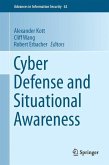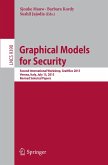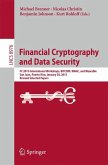This book features a wide spectrum of the latest computer science research relating to cyber warfare, including military and policy dimensions. It is the first book to explore the scientific foundation of cyber warfare and features research from the areas of artificial intelligence, game theory, programming languages, graph theory and more. The high-level approach and emphasis on scientific rigor provides insights on ways to improve cyber warfare defense worldwide. Cyber Warfare: Building the Scientific Foundation targets researchers and practitioners working in cyber security, especially government employees or contractors. Advanced-level students in computer science and electrical engineering with an interest in security will also find this content valuable as a secondary textbook or reference.
"This collection of basic research is designed for advanced students and practitioners. ... As is typical of the Springer series, the information is quite current and advanced. Each chapter is a standalone paper with its own list of references at the end ... . the book is one to include on your reference shelf." (Brad Reid, Computing Reviews, July 2015)








